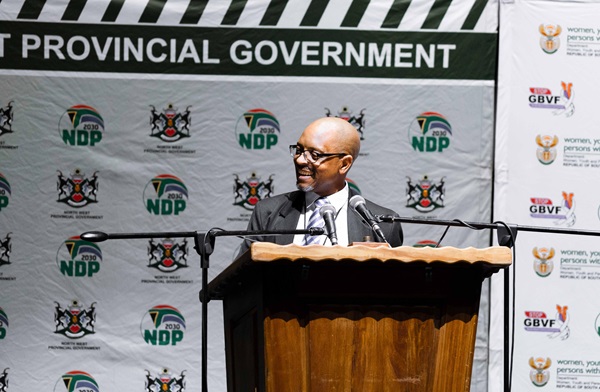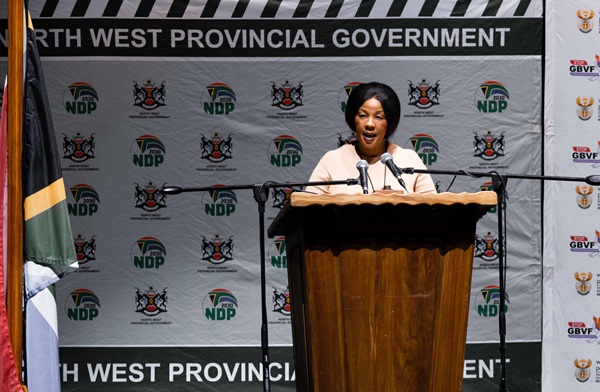A Centre for Diversity and Identity is being established at the North-West University (NWU), which is building academic pipelines for women and people with disabilities and stepping up efforts to support economic equity and inclusion.
These developments were highlighted during the stakeholder consultation session of the G20 Empowerment of Women Working Group for the Dr Kenneth Kaunda District Municipality, which took place at the Potchefstroom Campus on 24 April.
The session focused on women’s economic empowerment for inclusive economic growth under the theme “Solidarity – A connected world, built on a people-centred and inclusive future”.
Ntsikie Kote-Nkomo, chief director for Strategy and Internationalisation in the office of the NWU vice-chancellor, Prof Bismark Tyobeka, said on his behalf that the Centre for Diversity and Identity that the NWU is establishing will be a multidisciplinary hub dedicated to research, leadership development and policy innovation around equity and inclusion.
“The NWU is also committed to building academic pipelines for women and persons with disabilities, ensuring access and success across all disciplines.” Ntsikie said through platforms such as the NWU’s Entrepreneurship Hub, bhive Centre and the NWU Business School, the university supports inclusive innovation and entrepreneurship, particularly in under-resourced communities and focusing especially on women business owners.
“We stand ready to actively support the implementation of the National Strategic Plan on Gender-Based Violence and Femicide (GBVF) through evidence-based interventions in collaboration with partners from all spheres of society.”
Gender disparities are disconcerting
In the 21st century, it is unconscionable that gender disparities remain entrenched across global financial systems, policy spaces and social institutions, Ntsikie said. It is even more disconcerting when these disparities intersect with disability, race, geography and poverty.
She pointed out that Goal 5 of the United Nations’ Sustainable Development Goals (SDGs) urges the achievement of gender equality and the empowerment of all women and girls. However, the UN Economic Commission for Africa (UNECA, 2020) indicates that Africa’s average gender equality index score is a mere 0,48, revealing that gender parity remains elusive in critical domains such as political representation, education, health and labour force participation.
“In our rural province of North West, where many of us in this room have roots, these issues are lived realities,” Ntsikie said. “The 2024 Women Youth and Persons with Disabilities (WYPD) Strategy reveals that women with disabilities are less than half as likely to access tertiary education.”
The consultation session brought together various G20 women empowerment stakeholders, representatives from local, provincial and national government, community members, and staff and students of the NWU.
Among the guests were Oageng Molapisi, member of the executive council (MEC) for Cooperative Governance, Human Settlements and Traditional Affairs; Madoda Sambatha, MEC for Agriculture and Rural Development; Councillor Nikiwe Num, executive mayor of the Dr Kenneth Kaunda District Municipality; Councillor Gaba Thithiba Ka Qhele, executive mayor of the JB Marks Local Municipality, and Advocate Mikateko Maluleke, director general of the Department of Women, Youth and Persons with Disabilities.Photos:
 Clement Manoko, executive director for Corporate Relations and Marketing, opened the consultation session.
Clement Manoko, executive director for Corporate Relations and Marketing, opened the consultation session.
Ntsikie Kote-Nkomo, chief director for Strategy and Internationalisation at the NWU, says it is important to recognise that solidarity is not symbolic; it is a deliberate action, brave policy reform and shared leadership.
